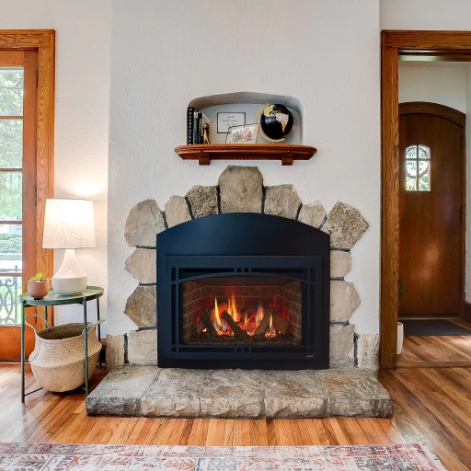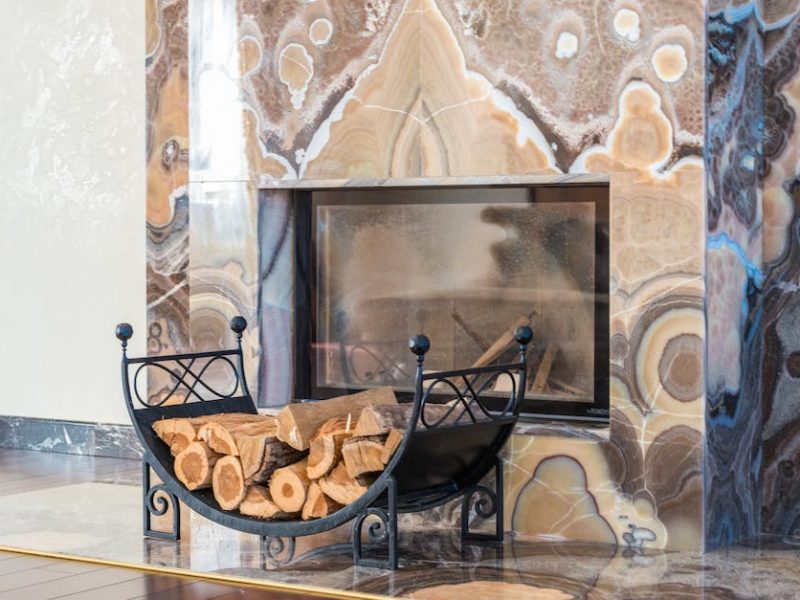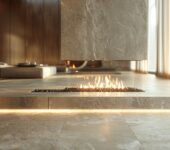Table of Contents
Close to 50% of homebuyers prefer to have a gas or wood fireplace in a home. Although there are other ways to heat a house these days, many people still see fireplaces as a great home feature.
If you’re thinking about installing a fireplace, however, one of the most important decisions to make is which type you want. Both gas and wood fireplaces can be great choices, but each provides a different experience to homeowners.
In this guide, we’ll help you decide whether you should get a gas or wood fireplace.
Ease of Installation
One of the things you’ll want to think about when choosing a gas or wood fireplace is the ease of installation.
Both types of fireplaces will need to be installed by a professional. However, keep in mind that a gas fireplace will typically be easier to install than a wood-burning fireplace. A gas fireplace installation can be done quickly and may only take a few hours or a day to complete.
The installation of wood fireplaces will be a bit more difficult in most cases because a wood fireplace needs to have a chimney. Building a chimney heating system can be expensive and the installation can be more complicated.
Cost to Use
Not only should you think about the cost of installation when buying a fireplace, but you should consider the cost of operation as well.
The overall cost of using a fireplace will vary based on the cost of gas in your area and the cost of wood. Generally speaking, getting the same amount of heat output from a gas fireplace will cost you significantly less than from a wood-burning fireplace.
Remember that the cost of running a fireplace can add up over time. It’s important to take a closer look at the costs of gas vs firewood in your area to ensure that you’re comfortable with your choice.
Safety
With either gas fireplaces or wood-burning fireplaces, you should keep safety in mind. In general, however, a gas fireplace will be a bit safer than a wood-burning installation.
Natural gas is easier to use and there are fewer factors that could potentially cause harm. A traditional fireplace that uses wood, for example, causes a lot of smoke and embers in comparison with a gas fireplace. Ashes and soot can build up if the fireplace isn’t cleaned regularly and this can make it harder to control fires.
Additionally, leaving a wood fire unattended can be dangerous. A gas-burning fireplace, on the other hand, can be left running without as much attention being needed.
Finally, a gas fireplace won’t release some of the pollutants that a wood-burning fireplace could, such as benzene, formaldehyde, and polycyclic aromatic hydrocarbons (PAHs).
Environmental Factors
If you’re getting a gas or wood fireplace, you may also be curious about the environmental impact of each. Making the decision between a wood or gas fireplace can be difficult because each has its pros and cons.
On the one hand, gas is a great choice because it emits 75% less CO2 compared to wood fireplace units. Natural gas emits significantly fewer pollutants overall than wood-burning fireplaces.
With that being said, however, gas is a non-renewable resource. Acquiring gas involves fracking which releases a significant number of pollutants into the air. Wood is renewable, so this makes it a better option in some ways.
You’ll want to consider how often you’ll use your fireplace and consider the implications of each when making your choice.
Home Value
Both fireplace types will add a similar level of resale value to your home. A fireplace can add 12% to the resale value of your home since many homebuyers find them to be a desirable feature.
With that being said, your choice may depend on who you expect will be buying a home in your area. Generally speaking, older generations tend to prefer wood-burning fireplaces while younger homebuyers often prefer gas fireplaces instead.
Ambiance
If you’re buying a fireplace for your home, chances are that the ambiance it creates is important to you. A fireplace can be a great home feature that can make any room feel more cozy and inviting.
Most people prefer a wood-burning fireplace when it comes to its visual appeal and sensory experience. However, either option can be a great choice if your main priority is simply to heat up a room.
A gas fireplace will offer some of the ambiance and feel of a wood-burning fireplace but will be much easier to use. All you’ll need to do is flip the switch.
Maintenance Requirements
With the level of maintenance required from a fireplace, it’s clear that a gas fireplace is the better option.
When maintaining a wood fireplace, you’ll have to take care of the wood and any ashes and embers that accumulate. You’ll also need to get an annual chimney inspection to ensure that your fireplace keeps working its best.
A gas fireplace, on the other hand, will require little maintenance and will be easy to clean as needed. You’ll simply need to do a bit of glass cleaning and calibration from time to time.
Making the Choice Between a Gas or Wood Fireplace
If you’re trying to choose whether to install a gas or wood fireplace, be sure to think about all of the important factors. While a wood-burning fireplace may provide a better ambiance, gas fireplaces require little maintenance and offer an easier installation process.
Ready to buy a fireplace for your home? Browse our selection to find the perfect wood or gas fireplace now.
Related Articles:
Latest Articles
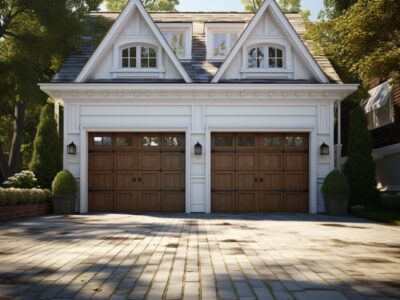
Why Is My Garage Door Opener Opening Both Doors?
Table of Contents1 Understanding Garage Door Openers2 Common Issues with Garage Door Openers3 Why Is My Garage Door Opener Opening Both Doors?4 How to Troubleshoot
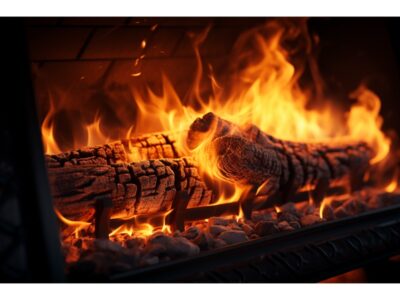
Is It Normal For Sparks To Come Out Of Chimney?
Table of Contents1 What Are Sparks in a Chimney?2 What Are the Dangers of Sparks in a Chimney?3 How to Prevent Sparks from Coming Out

How Garage Doors Work
Table of Contents1 Types of Garage Doors2 Components of a Garage Door3 How a Garage Door Works4 Safety Features of Garage Doors5 Maintenance and Troubleshooting

